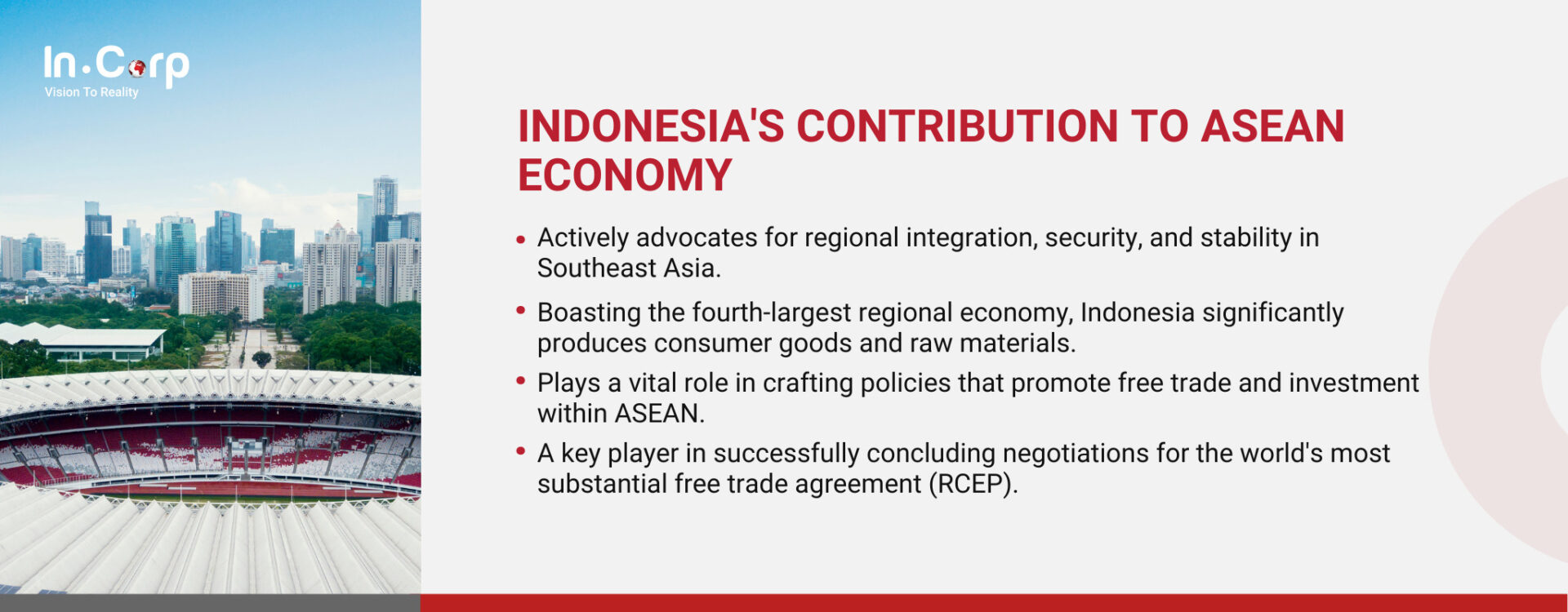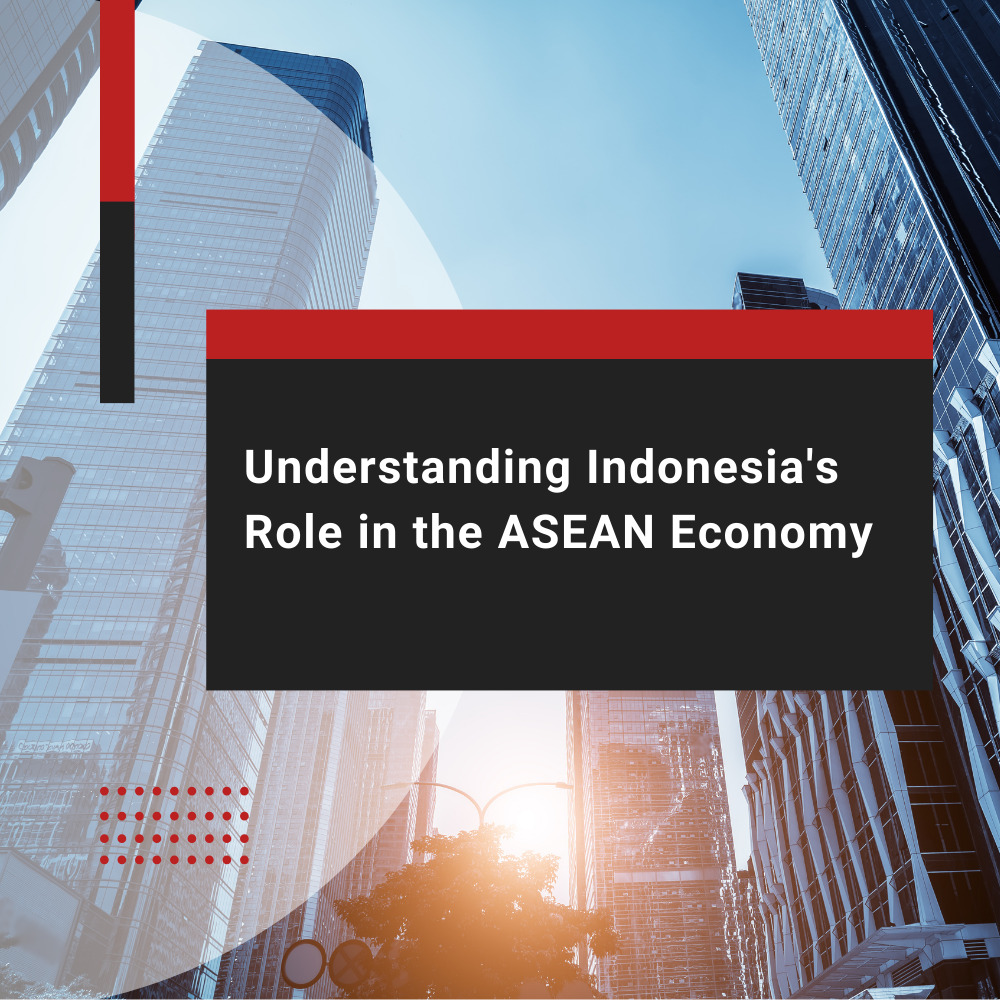As ASEAN ascends to its status as an economic superpower, Indonesia has become a pivotal player in the region’s remarkable growth to become an economic superpower. With its dynamic economy, strategic location, and cultural diversity, Indonesia stands as a beacon of development in the Southeast Asian landscape.
This article will delve into Indonesia’s instrumental role in propelling ASEAN’s trajectory toward becoming an economic superpower. We’ll also explore the key factors contributing to its rise as an economic superpower.
Overview of ASEAN as a Potential Economic Superpower
The Association of Southeast Asia Nations (ASEAN) has become prominent because of its economic growth. ASEAN showed successful regional integration and geopolitical importance, which makes it a significant player globally.
It’s no longer a secret that ASEAN’s economic growth has become one of the world’s fastest-growing consumer markets. With that said, the rising economic superpower now holds its reputation as the seventh-largest economy, solidifying its status as a global powerhouse.
By 2030, around 70% of ASEAN’s population is expected to join the middle class. Therefore, transforming the region into a thriving consumer market that could rank as the fourth-largest economy globally.
Despite economic challenges and the impact of the COVID-19 pandemic, ASEAN has demonstrated resilience, creating opportunities for sectors like e-commerce and online businesses.
Indonesia’s Contribution to ASEAN Economy

Indonesia is crucial in developing ASEAN, especially with its status as the most populous country in Southeast Asia.
Since its inception as one of the five founding members of ASEAN in 1967, Indonesia has played a pivotal role in shaping ASEAN’s vision, direction, and objectives.
The country actively promotes regional integration, security, and stability across Southeast Asia. Indonesia’s influence extends to enhancing economic integration within ASEAN. With the fourth-largest economy in the region, Indonesia is a major producer of consumer goods and raw materials.
A remarkable illustration lies in Indonesia’s pivotal role in effectively finalizing negotiations for the Regional Comprehensive Economic Partnership (RCEP), recognized as the world’s most substantial free trade agreement.
RCEP involves ASEAN and several key trading partners, including China, Japan, and South Korea.
Why Indonesia is a Good Destination for Investment
As a country that actively facilitates investment in Southeast Asia, Indonesia possesses several advantages to be your following investment destination.
| Advantages | Description |
| Strategic Location | It’s strategically located for easy access to ASEAN and Asian markets, serving as an attractive alternative to China, with proximity to major shipping and transport routes. |
| Growing Economy | The country has consistently maintained a GDP growth rate above 5%, primarily propelled by domestic consumption, constituting approximately 60% of the GDP. |
| Government Reforms | The government is committed to fostering foreign investment and has implemented robust economic reforms, offering attractive incentive programs. |
| Ease of Doing Business | Foreign investors benefit from favorable and improving rankings for ease of doing business. |
| Abundant Workforce | With a labor force of nearly 137 million people, most of whom are under 30 years old, Indonesia offers a youthful and abundant workforce. |
| Special Economic Zones | Indonesia is actively developing Special Economic Zones, which provide incentives and benefits for investors. |
| Growing Positive Investment List | It’s strategically located for easy access to ASEAN and Asian markets, serving as an attractive alternative to China, with proximity to major shipping and transport routes. |
| Growing Consumer Spending | Consumer spending is rising, with a population exceeding 237 million, a rapidly expanding middle class, and a services sector contributing more than 40% to GDP. |
| Network of Free Trade Agreements | Indonesia has signed over 14 Free Trade Agreements, offering trade advantages in Asia, ASEAN, Europe, and other global regions. |
| Abundance of Natural Resources | Indonesia boasts a wealth of natural resources, including coal, silver, gold, nickel, copper, bauxite, thermal coal, tin, petroleum, and natural gas. |
Investment Opportunities in Indonesia
Indonesia offers several advantages as one of the excellent investment destinations in ASEAN. Here are the key sectors as options for investment:
1. Mining and Petroleum
Indonesia’s mining and petroleum sector has been a cornerstone of its economy since the 1970s, contributing to about 60% of total exports.
2. Manufacturing
Currently making up 20% of GDP, Indonesia aims to boost this to 25% by 2030, aspiring to become a manufacturing hub comparable to Germany and South Korea.
3. Services
The services industry is the largest job provider, employing more than 45% of the workforce and contributing around 45% to GDP. Tourism and hospitality, especially the demand for hotels, are expected to rise significantly as more tourists and business travelers visit the country.
4. Agriculture
Agriculture is vital to the economy, engaging one-third of the workforce. It includes small-scale farming and large plantations producing various goods such as rice, rubber, palm oil, tropical fruits, nutmeg, cocoa, and coffee.
5. Digital Economy
Indonesia’s digital economy has experienced remarkable growth recently and is projected to reach USD 124 billion by 2025. A prosperous and tech-savvy consumer base is reshaping consumption patterns, offering ample opportunities for foreign investors.
6. Infrastructure
In 2014-2019, the Indonesian government announced an ambitious infrastructure plan worth USD 350 billion, with plans to invest an additional USD 400 billion in infrastructure projects nationwide.
Guide to Doing Business in Jakarta

Start Incorporating with InCorp Indonesia
Indonesia, one of the original five members who founded ASEAN in 1967, occupies a vital position in ASEAN’s progress. The nation has shaped ASEAN’s vision, orientation, and goals for years.
Indonesia has numerous advantages that make it an attractive investment destination across various sectors.
To seize this opportunity, collaborate with InCorp Indonesia, which provides company registration and business license services to simplify your business operations in the country.
Daris Salam
COO Indonesia at InCorp Indonesia
With more than 10 years of expertise in accounting and finance, Daris Salam dedicates his knowledge to consistently improving the performance of InCorp Indonesia and maintaining clients and partnerships.


